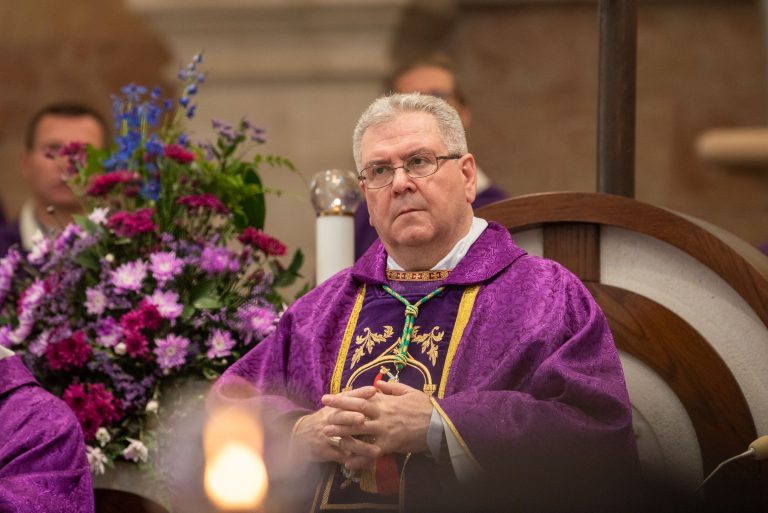“What Francis celebrates in Greccio,” Patton said, “is the Eucharist in a context that represents the scene in Bethlehem. This is Francis’ vision: the Son of God who became incarnate and was born in Bethlehem is the same one who makes himself small and offers himself to us daily through the Eucharist. What happens in Greccio is not so much the creation of the nativity scene, as we understand it today, but the link between the mystery of the incarnation of the Son of God and the mystery of the Eucharist.
Saint Francis, who lived during the time of the Crusades, offered words of wisdom on how Christians should approach wars in our time. The Custos of the Holy Land summarized this advice as follows: “Francis never enters into a conflict by fighting. His words are not violent, his attitudes are not violent and he explicitly refuses to carry weapons. He approaches the other, recognizing that the other is not an enemy but a person, a brother who shares the same origin and the same dignity before God.
Patton continued: “I would also like to emphasize the importance, when examining conflicts, of paying attention to the concrete suffering of people, and not becoming ‘fans’ of one side or the other, as if there were two teams competing for a trophy. . War is always a tragedy that causes many deaths and much suffering. Faced with this situation, we are called to have an attitude of “equiproximity,” as Pope Francis calls it, an attitude of deep empathy: feeling the suffering of people on both sides. And help each side feel the suffering of the other, and vice versa. This is the only way to move from suffering that generates a thirst for revenge, resentment and hatred to suffering that can generate compassion, mercy and even paths of reconciliation. It is not only something Franciscan, but something simply and profoundly Christian. »
At Christmas, the eyes of Christians around the world turn to the Cave of Bethlehem and the Holy Land, said the Custos.
“Christians must not forget their roots! And they must not forget that here they have brothers and sisters who are currently facing great difficulties.”
Patton called on Christians around the world to “commune with us in prayer, to be interested in what is happening in the Holy Land without becoming ‘fans’ of one side and to demonstrate concrete solidarity towards their brothers living in the Holy Land.
As Franciscans, he said, “we will continue to care for the Christians of the Holy Land in concrete ways, as we have done over the centuries – through schools, work and also intervention economical in situations of need.



